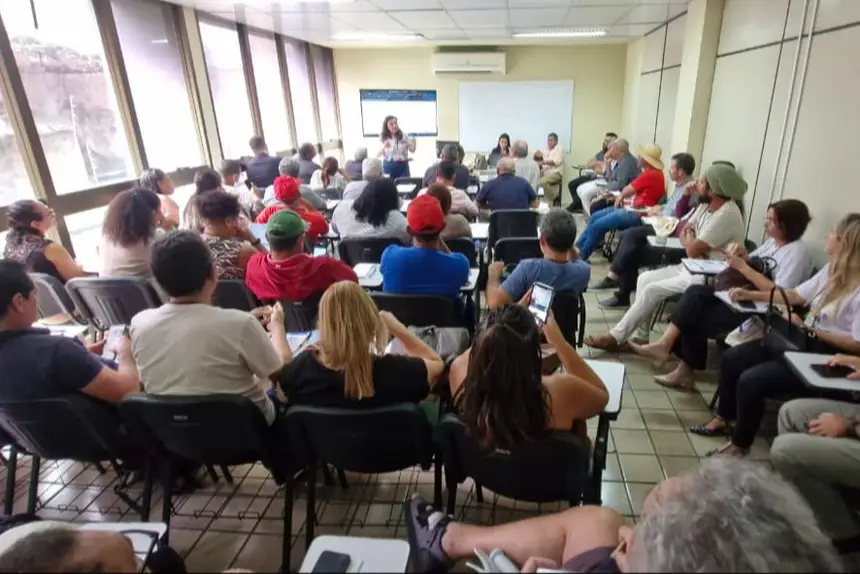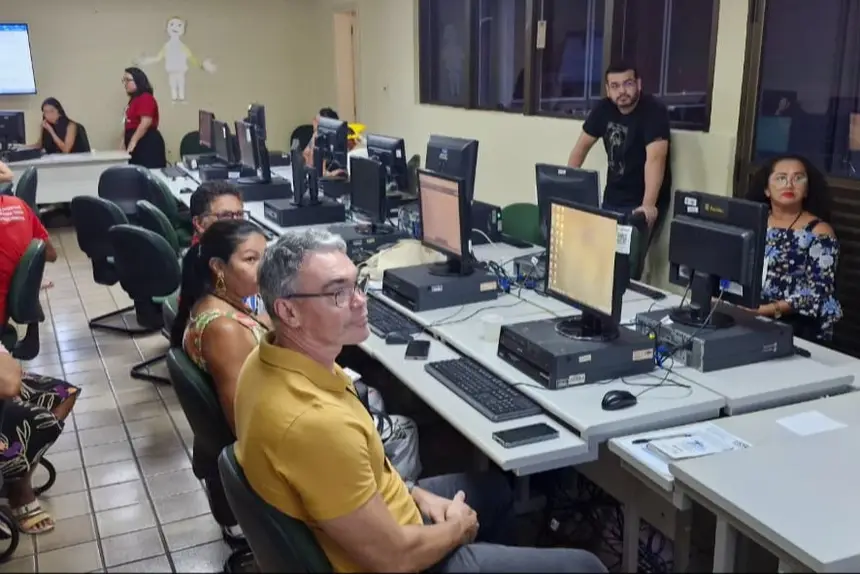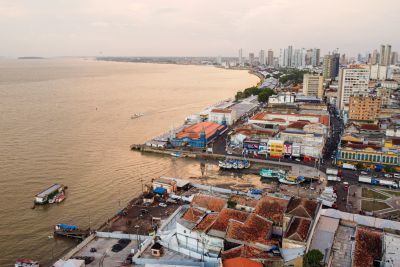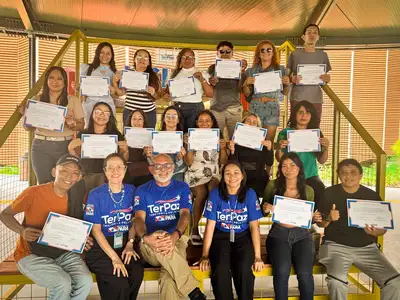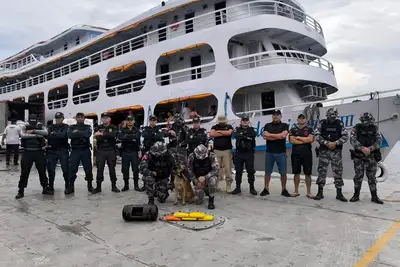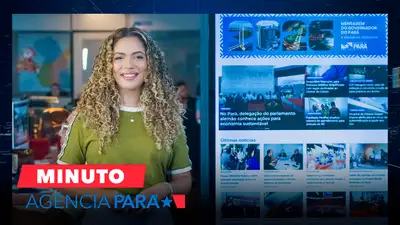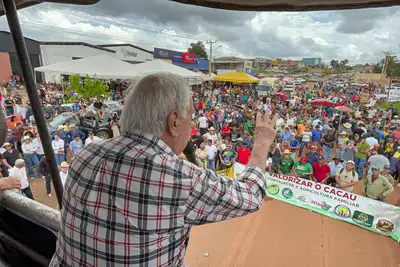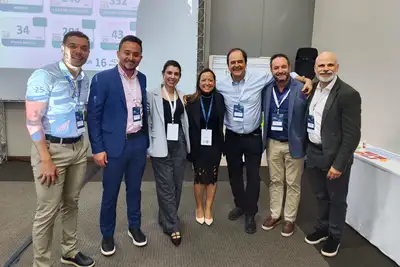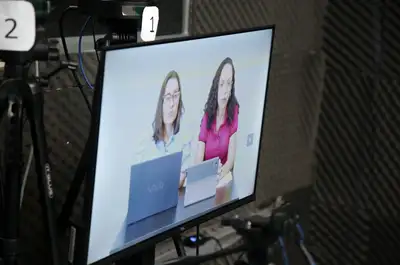State Conference of Cities of Pará debates, on its 2nd day, from river transport to water universalization
Public authorities and civil society analyzed proposals from municipalities to advance in the selection of 20 solutions that will represent the State at the National Conference
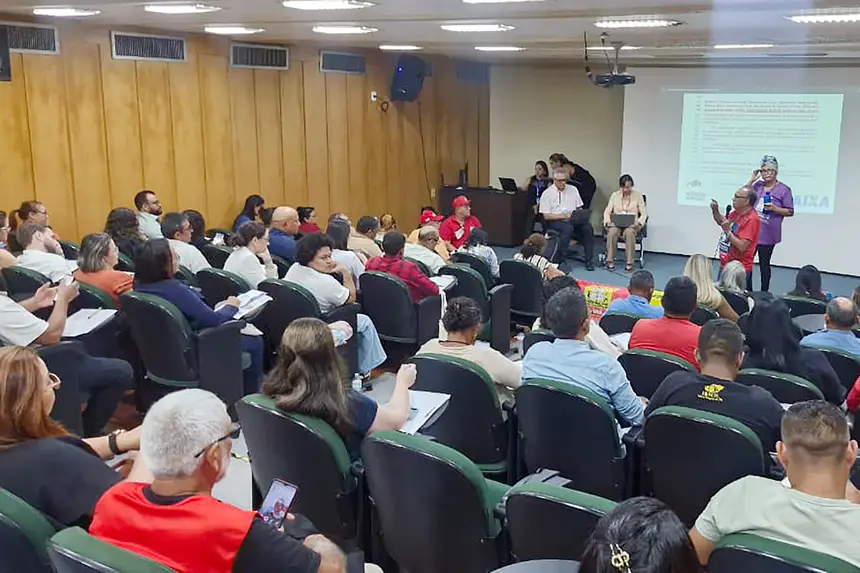
On this Tuesday (13), the 7th State Conference of Cities entered its decisive phase of debates. Representatives of public authorities and civil society gathered at the Public Governance School of Pará (EGPA) to analyze and improve the proposals sent by the municipalities of Pará through municipal conferences. The goal is to advance in the selection of 20 solutions that will represent Pará at the national stage, scheduled for October this year in Brasília. On this Thursday (14), the last day of the event, these proposals will be officially defined.
The participants of the Conference met in six thematic axes: sanitation, urban mobility, housing and land regularization, digital transformation and territory, environmental sustainability and climate transition, and democratic participation. Each debate room also had the opportunity to launch new proposals in addition to those already brought from the more than 100 municipalities in Pará that held the local Conference.
Housing, Sanitation, and Sustainability - According to state councilor Ayrtton Cley, representative of the National Confederation of Residents' Associations (Conam), the debate around housing and land regularization highlighted the need for housing policies that consider regional specificities.
“Pará is continental and different from other States. We need to ensure that our housing culture is respected, with programs that truly meet the population's needs,” he stated. He advocated for the expansion of housing registries and the promotion of accessibility.
In the basic sanitation axis, councilor and discussion mediator Jorge de Deus, also from Conam, noted that one of the most debated proposals was the universalization of access to water. He recalled that, despite the water abundance in the Amazon, access to treated water is still not homogeneous in the State.
“We need to work on public policies that can be presented at COP 30 as alternatives to meet this demand,” said João de Deus. The group also discussed solid waste management, sewage treatment, and proper landfill disposal, the latter being a cross-cutting issue that also passed through the environmental sustainability and climate transition group.
In this axis, councilor Marlon Avelar, representing public authorities through the State Secretariat for the Environment and Sustainability (Semas), mediated the debate that managed to define two proposals still in the morning, as he explains:
"We managed to finalize a proposal for solid waste disposal and another that was an action plan against deforestation and climate actions. In the case of the first, we made a change to a municipal proposal that talked about promoting a campaign with retailers for recycling and responsibility for the waste from their store or business. It was decided to expand it, since the issue of solid waste disposal affects all cities in the state of Pará. We changed the proposal to ensure and allocate technical financial support for the implementation of waste management and disposal plans in all municipal realities, to create a policy of circular use, recycling, reducing consumption, and decreasing the need for landfills,” he recounts.
Urban Mobility, Digital Transformation, and Democratic Participation
Another room with proposals forwarded still in the morning, on the second day of the event, was the urban mobility axis. State councilor Sandra Batista, who mediated the debate, stated that the proposals emphasized solutions adapted to the Amazonian reality, such as river transport. "We had, for example, the proposal for water transport, which is very important in the Amazon, but at the national level, they have no idea of the need for this mode. This is something we will take, as Amazonians, to the National Conference," she advocates.
Measures such as traffic education in schools, accessibility in public transport, implementation of an app for real-time bus tracking, use of smart traffic lights, and the creation of a Metropolitan Transport Council to integrate decisions among municipalities in the Metropolitan Region of Belém were also discussed.
In the digital transformation and territory axis, under the mediation of Graça Xavier from the National Union for Popular Housing (UNMP), the expansion of free internet access in schools, squares, health units, and open areas, such as the boarding areas for river transport, was discussed. Special attention was also given to digital education for children, focusing on safety and prevention of virtual crimes.
Moderated by Thiago Trindade from the Metropolitan Observatory, the group that addressed the democratic management of cities advocated for the formation of consortia and training of public agents to raise funds and enable partnerships in areas such as basic sanitation: "At this first moment, we are passing the proposals from the beginning, and we debated a lot about the formation of consortia and training of public agents to work together with state and federal agencies, mainly, to not only raise funds but also to develop partnerships and consortia to enable, for example, basic sanitation policies in the regions of Pará," he affirms.
Last day will reach 20 final proposals - The 7th State Conference of Cities will continue until next Thursday, 14, when the 20 proposals that will represent Pará at the 6th National Conference of Cities will be defined, consolidating the state's contribution to the National Urban Development Plan (PNDU).
The State Conference is held by the State Secretariat for Cities and Regional Integration (Secir) and through the State Council of Cities of Pará (ConCidades-PA) - an advisory and deliberative body that integrates the secretariat, with sponsorship from Caixa Econômica and support from the Ministry of Cities and the City Hall of Belém.


